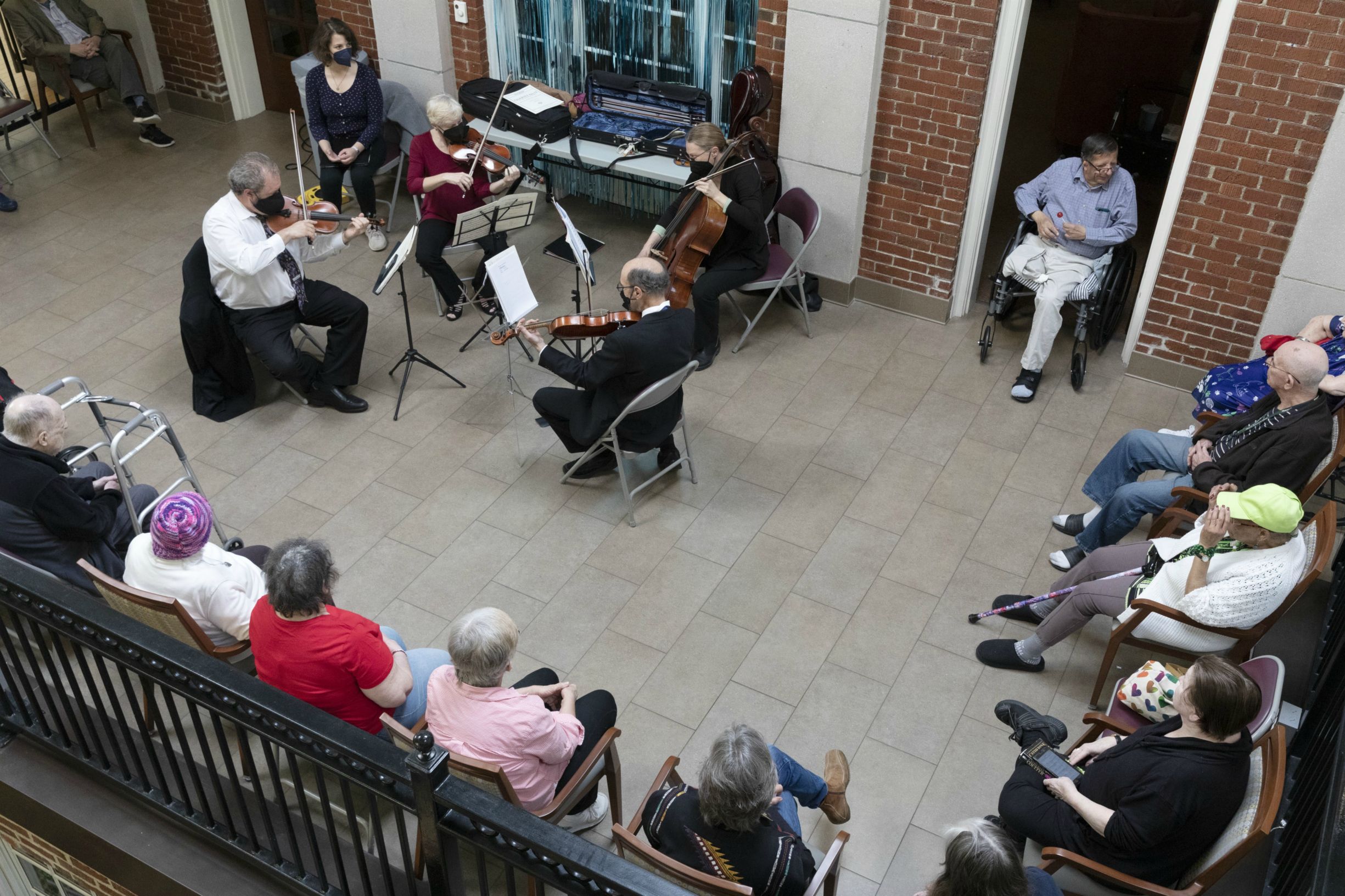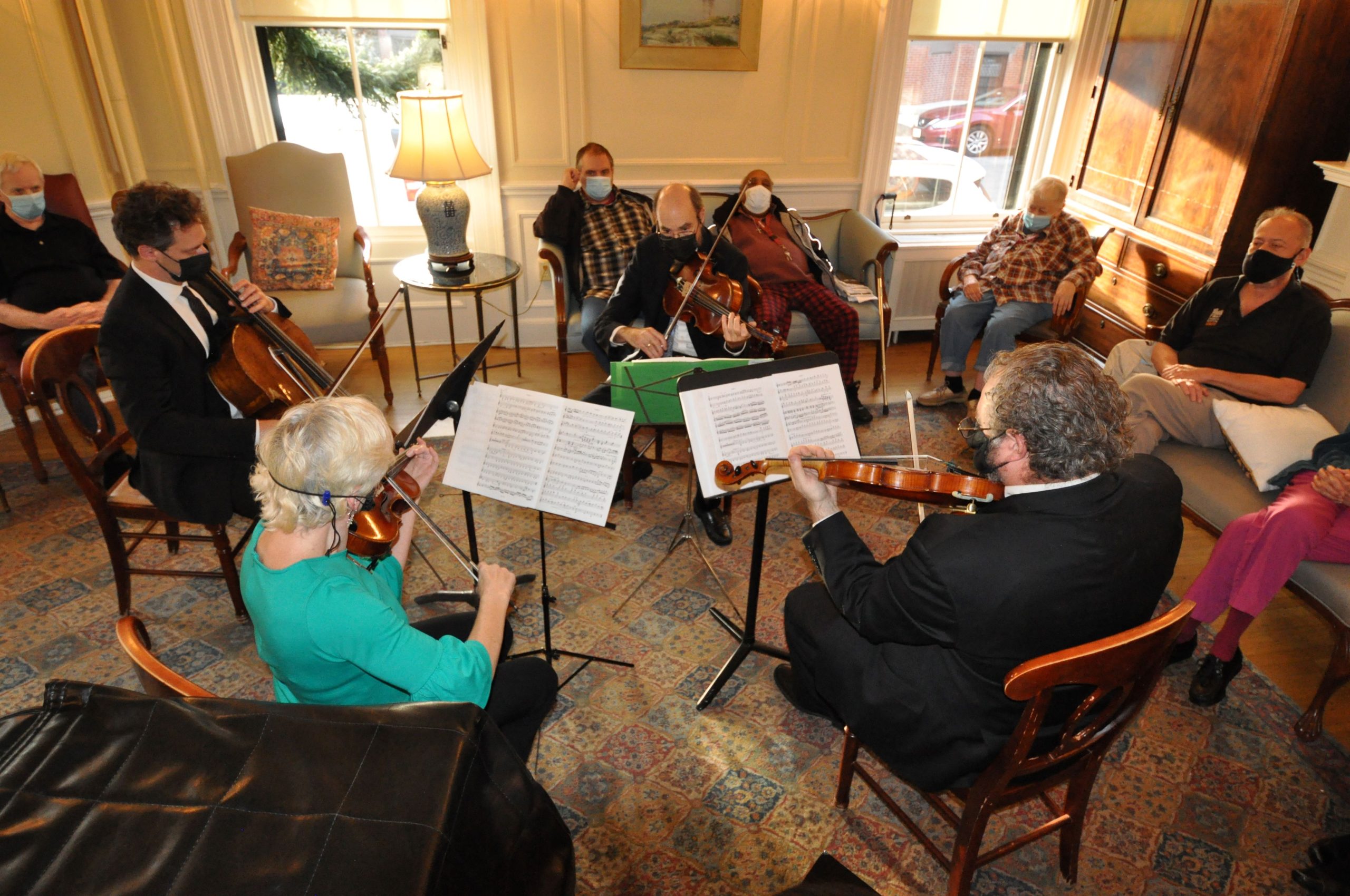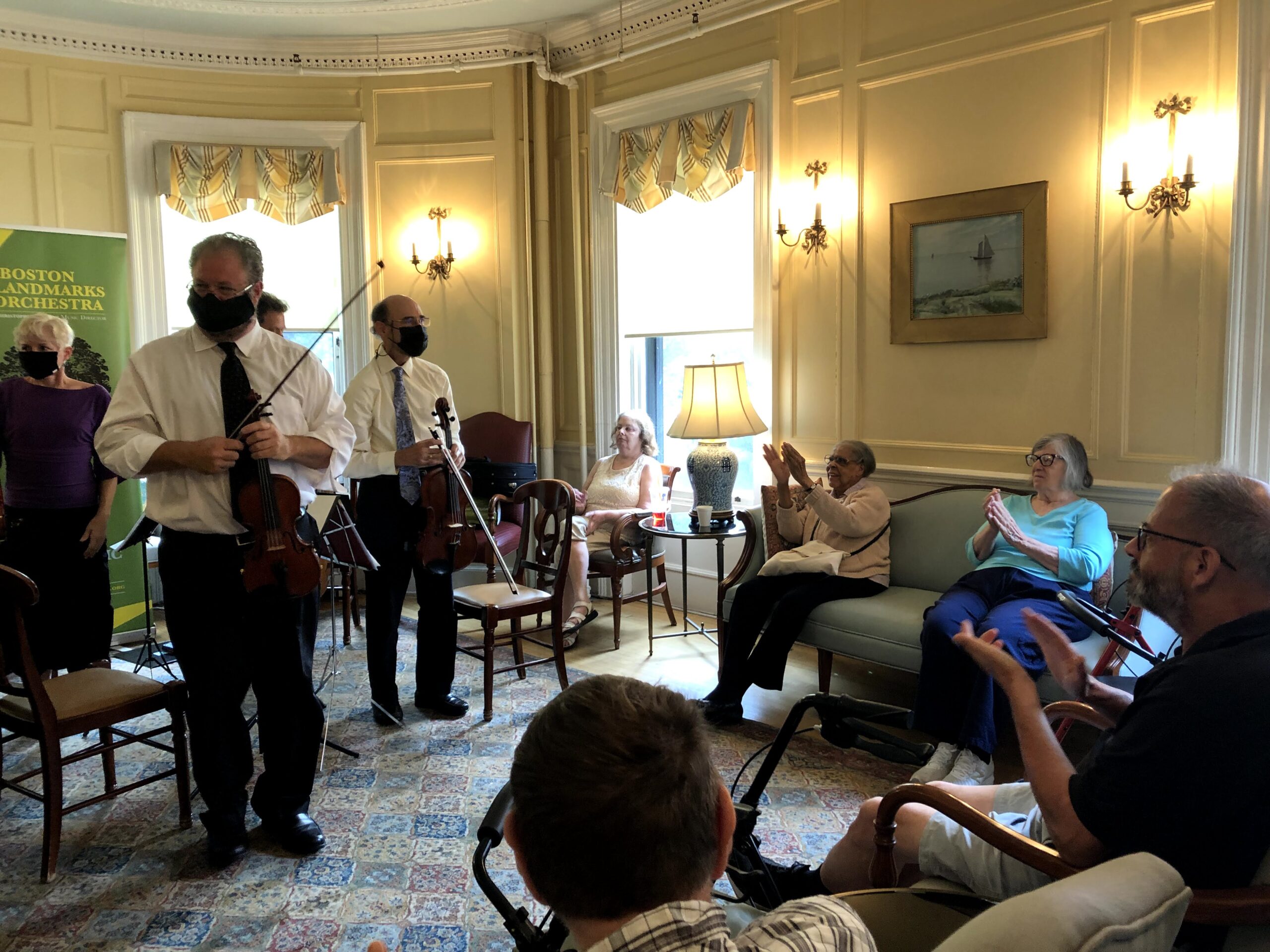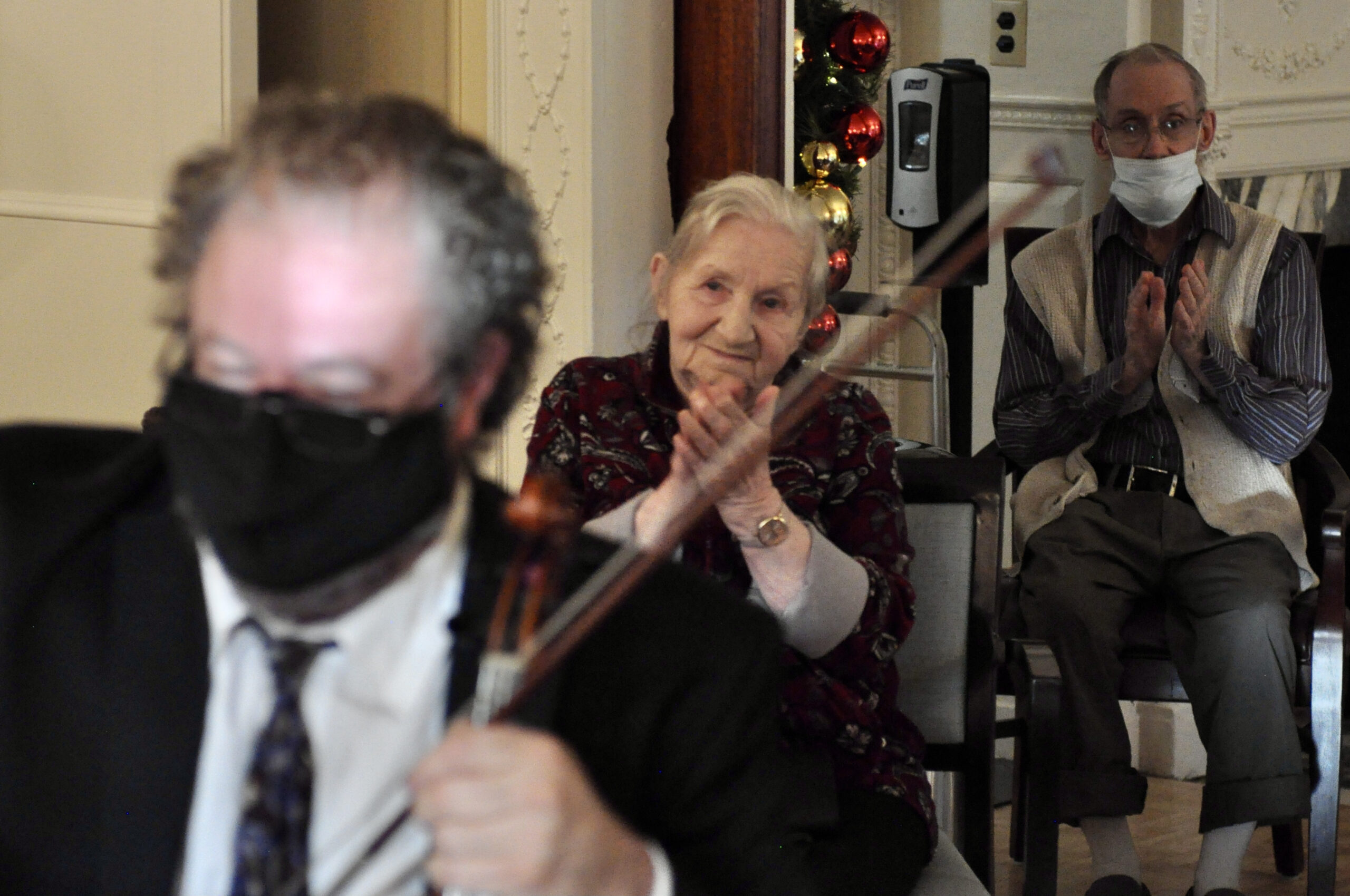Using research and initiatives developed by colleagues, Landmarks created a program that will provide a respite for those living with memory loss and those caring for them.
Music and Memory


Why classical music?
- Research proves that classical music can calm down someone who is upset or anxious
- It can also evoke happy memories or remind them of past musical experiences
- The part of the brain which processes music holds up even while the rest of the brain deteriorates
How it works
- 40-45 minute program with approximately five-minute musical excerpts.
- Short speaking portions in between pieces that act as guided listening.
- Repertoire will be familiar, soothing, calming, and sensory-friendly (not too loud or fast)
- Program can be offered virtually or in-person on a sliding scale fee system
Testimonials
“Thank you so much for putting the Music and Memory program together… [It was] such a beautiful experience for our residents, their families, our staff and even the receptionist who was watching on the camera and wished she had sound! It was just amazing! Residents who are non-verbal in their stage of dementia were smiling [and] clapping their hands.”
-Anna from Rogerson House

“You could tell how much residents enjoyed these performances because their faces lit up and they sang along to the songs. Many of our residents have memory issues but they had no difficulty remembering the words of the songs played during this program. During this concert many residents said it reminded them of when they used to go to the symphony. We cannot thank you enough for performing… and making each resident’s day so much brighter.”
-Catherine from Hale House

For more information, contact Emilia De Leo at 617-987-2000, ext. 103 or [email protected]
Additional reading on the link between music and memory
“How Beethoven’s Music Speaks through the Fog of Alzheimer’s”– Discover Magazine
“Can Music Help Someone with Alzheimer’s?”– Mayo Clinic
Various academic studies– Musicandmemory.org
